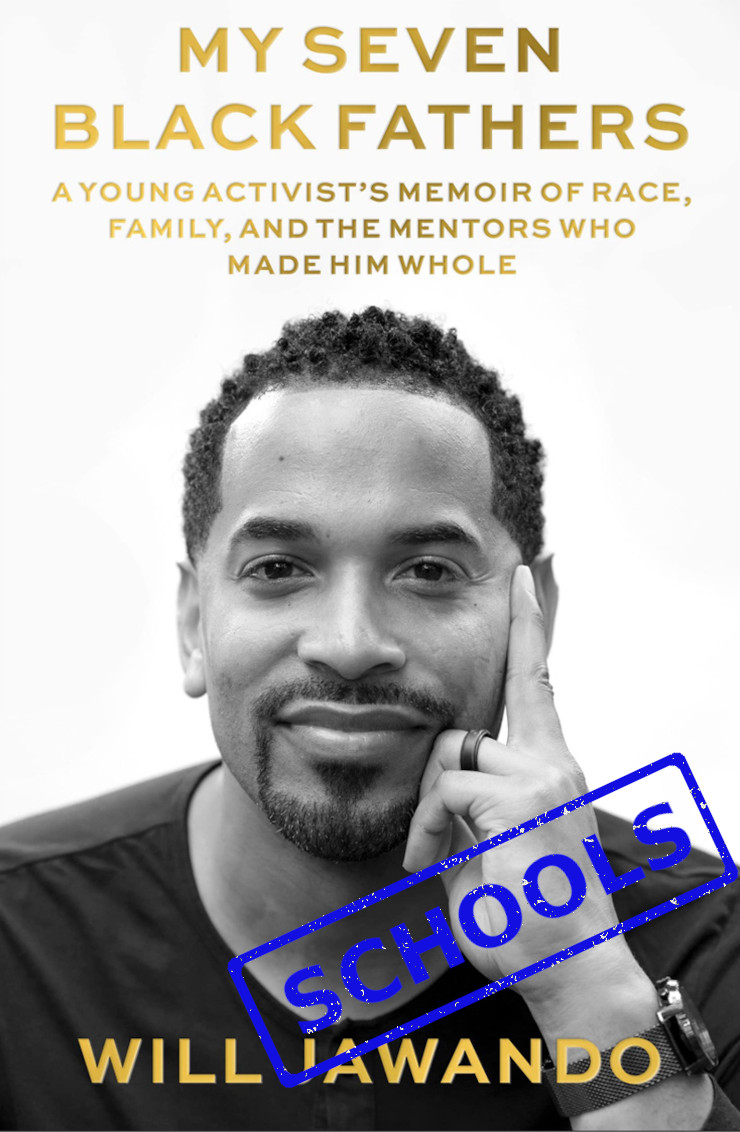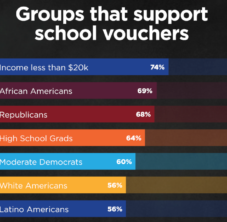Throughout My Seven Black Fathers, Will Jawando returns several times to his experiences (good and bad) in school, as well as the differential treatment between white and black school children.
In Chapter 2, Jawando relates horrific treatment at the hands of a teacher’s assistant at Our Lady of Lourdes Catholic school. Being falsely accused of cheating by Ms. Hayes (p. 51):
“Oh, you cheated all right. I saw it with my own eyes. Then you kicked that chair when you got caught. To top it all off, you’re talking back to me. You’re just having a banner day, aren’t you, William?” She scribbled furiously on the note and handed it to me with a triumphant smile. “Principal Smith will know exactly what to do with you.”
Principal Smith comes across not much better.
We don’t know if Our Lady of Lourdes explicitly wanted to expel Jawando because he is black, but he paints the picture quite clearly (p. 40):
Instead, where I was concerned, white teachers and administrators at the Catholic school I attended for second and third grades just wanted me out, and they cared little if they had to break me to do it.
For Jawando, the environment at St. John’s College High School and Catholic University was better but still mixed.
Reading these passages, we have to wonder why Our Lady of Lourdes would retain such teachers and administrators. Similarly, MCPS has a few principals and teachers who are openly racist in the classroom and are not disciplined; in fact, they are protected by the teachers’ union without any objection from the County Council. Even worse, we had a long-term case of sexual harassment that was allegedly covered up by then-superintendent Monifa McKnight, and we have yet to know if anyone else was involved. In any case, as far as I can recall, we have not heard Jawando demanding the termination of an MCPS employee for racist behavior.
Jawando cites several instances of research that point to directions for improving outcomes for black K–12 students. One of them pertains to the presence of a black teacher in the classroom (p. 65):
The research on race and education is clear. One Black teacher in third, fourth, or fifth grade can radically shift the prospects of Black children, especially impoverished Black boys. (A Johns Hopkins study showed that one Black teacher in elementary school decreases dropout rates nearly 40 percent while increasing interest in higher education by nearly 30 percent.)
If were going to quote research, we can also quote the study showing how black parents favor school vouchers at rates higher than white parents. The Mecca Business Learning Institute in Gaithersburg is a charter school that has enrolled mostly black and Hispanic students. These families desperately want something that MCPS isn’t giving. Jawando should do what he can to promote school choice and school vouchers; as far as I can tell, he’s more interested in “fully funding” the MCPS status quo.
While Mr. Jawando had some tough times in K–12, it will be difficult to find someone who hasn’t. Some have it harder than others, and, as Mr. Jawando states, some students suffer because of skin color. Others suffer because their behavior doesn’t match what the school system says it should be; or because of their height or weight; or because of their gender (boys are prescribed Ritalin at rates 2–3 higher than girls).
Regardless, Jawando mentions one horrific reason why so many black males are incarcerated at some point in their lives (p. 49):
The cases of little kids handcuffed and pepper sprayed in schools testifies to how far the demonization of Black children can escalate, to say nothing of the school-to-prison pipeline [SPP].
The SPP is heartbreaking. A large percentage of Black children are doomed because, at least in part, of an entrenched educational system that predetermines a life of crime and failure. To me, the obvious conclusion is to dismantle the SPP, at a minimum starting with school choice and school vouchers. I have no doubt that Mr. Jawando wants the best for black children; we have yet to see in him the courage needed to dismantle the MCPS that, in many ways, contributes to their failure.




